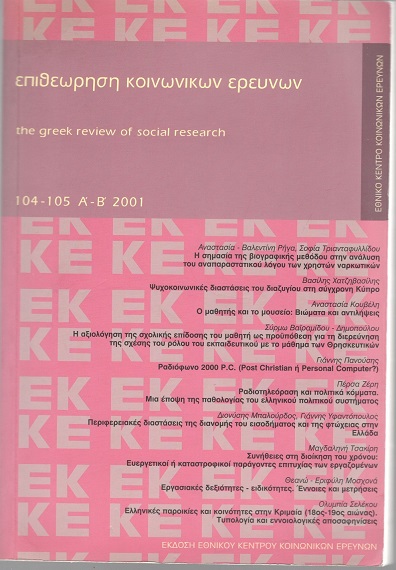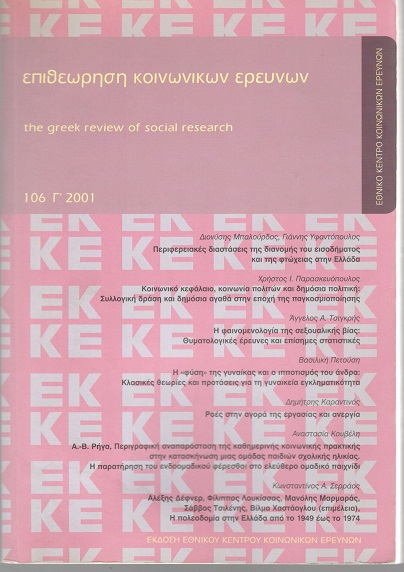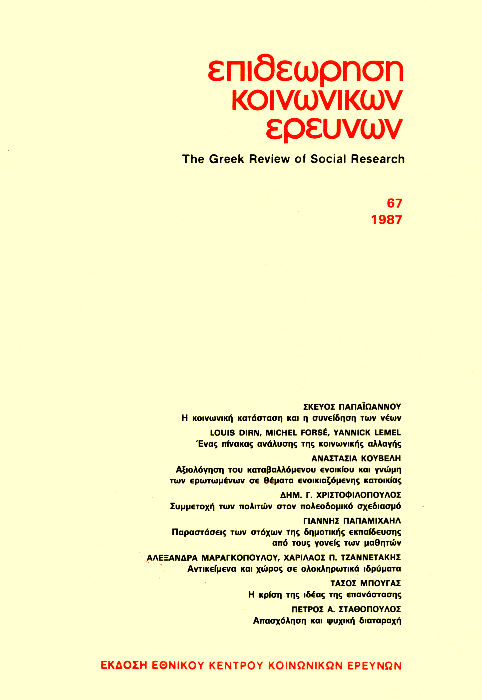Ο μαθητής και το μουσείο: Βιώματα και αντιλήψεις
Abstract
Στο άρθρο αυτό παρουσιάζονται ορισμένα βασικά αποτελέσματα εμπειρικής κοινωνικής έρευνας που έγινε σε μαθητές της δευτεροβάθμιας εκπαίδευσης στην περιφέρεια πρωτευούσης και στην Ικαρία με αντικείμενο τη σχέση τους με το μουσείο. Στο κείμενο που ακολουθεί περιοριζόμαστε στα στοιχεία που αφορούν τους μαθητές της Αθήνας. Τα βιώματα των μαθητών προσεγγίζονται μέσα από τις συγκεκριμένες εμπειρίες τους με το χώρο «μουσείο», όπως: Πόσα και ποια μουσεία έχουν επισκεφθεί, με ποιον/ποιους έγιναν οι επισκέψεις, κατά πόσον τους δόθηκαν επεξηγήσεις για τα εκθέματα, συμμετοχή ή μη σε εκπαιδευτικά προγράμματα μουσείων, βαθμός ικανοποίησης από τις μέχρι τώρα επισκέψεις τους. Τέλος, η διερεύνηση των αντιλήψεων των μαθητών για το μουσείο καταδεικνύει την υπεροχή θετικών στάσεων απέναντι στο χώρο αυτό, καθώς και τη λειτουργία του σε γνωστικό επίπεδο, κατά κύριο λόγο, με παράλληλη υποβάθμιση του ρόλου του στον τομέα της ψυχαγωγίας και του ελεύθερου χρόνου.
Article Details
- How to Cite
-
Κουβέλη Α. (2001). Ο μαθητής και το μουσείο: Βιώματα και αντιλήψεις. The Greek Review of Social Research, 104, 63–87. https://doi.org/10.12681/grsr.8819
- Issue
- 2001: 104-105 A'-B'
- Section
- Articles

This work is licensed under a Creative Commons Attribution-NonCommercial 4.0 International License.
Authors who publish with this journal agree to the following terms:
- Authors retain copyright and grant the journal right of first publication with the work simultaneously licensed under a Creative Commons Attribution Non-Commercial License that allows others to share the work with an acknowledgement of the work's authorship and initial publication in this journal.
- Authors are able to enter into separate, additional contractual arrangements for the non-exclusive distribution of the journal's published version of the work (e.g. post it to an institutional repository or publish it in a book), with an acknowledgement of its initial publication in this journal.
- Authors are permitted and encouraged to post their work online (preferably in institutional repositories or on their website) prior to and during the submission process, as it can lead to productive exchanges, as well as earlier and greater citation of published work (See The Effect of Open Access).






